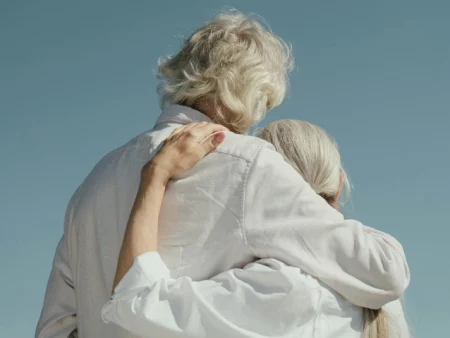Understanding Unrequited Love
Unrequited love, a complex psychological phenomenon, profoundly impacts emotional well-being. It occurs when one harbors deep romantic feelings for another who doesn’t reciprocate. This state can stem from idealizing a potential partner or misinterpreting friendly gestures. The effects can be far-reaching, often leading to decreased self-esteem, anxiety, and sometimes depression. It challenges one’s sense of self-worth, creating a cycle of self-doubt. However, this experience doesn’t diminish one’s inherent value. Identifying signs of unrequited affection is crucial for self-preservation and emotional growth. Key indicators include:
- Consistently initiating contact without reciprocation
- Avoidance of future-oriented discussions
- Preference for group settings over one-on-one interactions
- Frequent mentions of other romantic interests
- Lack of physical or emotional reciprocity
- Low prioritization of your needs
- Emotional unavailability
- Absence of jealousy in social situations
- Discussions about you in a platonic context
Recognizing these patterns is the first step towards acceptance and healing. Approach this realization with self-compassion, acknowledging that unrequited love is a common human experience. By understanding these dynamics, individuals can navigate complex emotions, fostering personal growth and emotional resilience. This awareness serves as a foundation for developing healthier future relationships and a stronger sense of self.
Acknowledging Your Feelings
Acknowledging your feelings is crucial in navigating unreciprocated affection. It requires courage to face the raw vulnerability of your heart’s deepest longings. This process of emotional honesty paves the way for genuine healing and personal maturity.
Embracing the full spectrum of your emotions, from the ache of rejection to persistent longing, allows you to process your experience authentically. It’s through this process that you can find the clarity needed to move forward. Remember, your feelings are valid, regardless of reciprocation.
Practice patience with yourself. The path to detachment is often winding, marked by progress and setbacks. Cultivate self-respect by honoring your feelings without judgment, recognizing they reflect your capacity for deep connection.
True emotional independence comes not from the absence of feelings, but from the courage to acknowledge and process them fully. It’s in this space of honest self-reflection that we find seeds of healing and hope.
By facing your emotions with trust and forgiveness, you create space for new perspectives. This journey of letting go is about finding reasons to grow beyond heartbreak. Seek support when needed, as shared experiences offer valuable perspective and comfort.
Setting Healthy Boundaries
Establishing personal boundaries is crucial when navigating unreciprocated affection. These invisible lines define emotional limits and protect well-being. In the context of unreturned sadness, boundaries act as a shield, preserving your sense of self while allowing for genuine communication.
To set effective boundaries, identify your emotional needs and limits. Reflect on behaviors or situations causing distress. Clearly articulate these boundaries to the object of your affection. For instance, express the need for physical distance or request certain topics be off-limits in conversations.
Consistency is key in maintaining these boundaries. Be firm yet respectful when reinforcing your limits. It’s about protecting your emotional space, not controlling the other person. Practice self-compassion as you navigate this challenging terrain.
Consider limiting contact if necessary, especially if prolonged interaction exacerbates emotional turmoil. This might mean reducing social media interactions or declining invitations to events where you’ll encounter them. While initially difficult, this distance can provide space for healing.
Remember, setting boundaries is an act of self-respect. It’s not selfish; it’s essential for emotional health and future relationships. By honoring your needs, you create a foundation for balanced connections. This process empowers you to navigate complex interpersonal dynamics with grace and self-assurance, fostering a sense of inner peace and personal growth.
Focusing on Personal Growth
Embarking on a journey of self-improvement can be transformative when grappling with unreciprocated affection. By channeling your energy into personal development, you create a pathway to renewed self-discovery and fulfillment. This shift in focus allows you to reclaim your sense of purpose and identity, independent of romantic entanglements.
Consider these strategies for fostering personal growth:
- Cultivate mindfulness through daily meditation or yoga practice
- Expand your horizons by learning a new language or musical instrument
- Challenge yourself physically with a fitness regimen or adventure sport
- Nurture your creativity through art, writing, or photography
- Enhance your professional skills with online courses or workshops
- Engage in volunteer work to broaden your perspective and connect with others
- Practice gratitude journaling to shift focus towards positivity
- Explore new hobbies that spark joy and curiosity
- Set ambitious yet achievable goals in various life areas
- Join interest-based groups to form new social connections
- Develop a daily reading habit to expand knowledge and stimulate critical thinking
- Engage in public speaking or debate clubs to boost confidence and communication skills
- Practice mindful eating and nutrition to improve overall well-being
- Explore nature through hiking or gardening to foster a sense of peace and connection
By immersing yourself in these enriching activities, you not only distract from emotional pain but also cultivate a stronger, more resilient version of yourself. This process of self-improvement can lead to increased confidence, expanded social circles, and a deeper understanding of your values and aspirations.
Remember, personal growth is a continual journey. Embrace each experience as an opportunity to learn and evolve. As you invest in your own development, you’ll find that your capacity for self-compassion and inner peace grows, paving the way for healthier future relationships and a more fulfilling life overall. This journey of self-discovery can transform the pain of unrequited love into a catalyst for profound personal evolution, enabling you to connect more authentically with yourself and others.
Seeking Support and Connection
Seeking support is crucial for healing and personal growth when facing emotional challenges. Building a strong support network provides invaluable comfort and guidance. Friends and family often offer empathy and understanding during complex times.
Professional help can provide specialized insights and coping strategies. Therapists, counselors, and support groups create safe spaces to explore emotions and develop resilience. These experts offer tailored approaches to address individual needs.
Online communities and forums dedicated to similar experiences can be powerful sources of connection. Sharing stories with others who have walked similar paths fosters a sense of belonging and validation. These virtual spaces often become wellsprings of collective wisdom and encouragement.
Reaching out for support is a courageous step towards healing and self-discovery. It opens doors to new perspectives and reminds us we’re not alone in our struggles.
Engaging in group activities or volunteering can provide meaningful connections while shifting focus outward. These experiences often lead to new friendships and a renewed sense of purpose. Seeking support is an act of self-care that honors emotional needs and fosters personal growth.
As you navigate this journey, be open to different forms of support. What resonates with one person may differ for another. The key is to remain receptive to the care offered by those around you, allowing it to nurture your healing process and strengthen your emotional resilience.
Practicing Self-Care and Compassion
Nurturing yourself through self-care is paramount when healing from emotional challenges. It’s about creating a sanctuary of inner peace amidst turbulent feelings. Begin by cultivating mindfulness – a practice that anchors you in the present moment, gently redirecting thoughts from past hurts.
Practical self-care strategies can transform your daily routine. Prioritize restful sleep, as it replenishes emotional reserves. Engage in regular physical activity to boost endorphins and clarity. Nourish your body with wholesome foods, recognizing the profound connection between physical and emotional well-being.
Explore creative outlets as a form of emotional expression. Whether through art, music, or writing, these activities provide a cathartic release. Immerse yourself in nature, allowing its serenity to soothe your spirit. Practice gratitude journaling to shift focus towards positivity and abundance in your life.

Self-compassion is the cornerstone of this journey. Treat yourself with the same kindness you’d offer a dear friend. Acknowledge your pain without judgment, recognizing it as part of the human experience. Practice positive self-talk, reframing negative thoughts into supportive affirmations.
Consider mindfulness meditation to cultivate inner calm. This practice enhances emotional regulation and self-awareness. Engage in activities that spark joy and reaffirm your sense of self-worth. Remember, self-care isn’t selfish – it’s essential for your well-being and personal growth.
By embracing these practices, you create a foundation of self-nurturance that supports healing and fosters resilience. This journey of self-care and compassion paves the way for renewed strength and emotional balance, preparing you for future relationships built on a foundation of authenticity.
Incorporate small acts of kindness towards yourself daily. Whether it’s savoring a cup of tea, taking a relaxing bath, or simply allowing yourself a moment of quiet reflection, these gestures accumulate to form a powerful practice of self-care. As you invest in your well-being, you’ll find your capacity for genuine connections with others naturally expands, enriching all aspects of your life.
Redirecting Your Energy
Redirecting your energy towards positive pursuits can be a powerful strategy for healing and personal growth. By channeling emotions into productive activities, you create new pathways for self-expression and fulfillment. This shift in focus not only aids in emotional recovery but also opens doors to unexpected opportunities and connections.
Consider exploring these transformative activities to redirect your energy:
- Immerse yourself in a creative writing workshop to express complex emotions through poetry or fiction
- Volunteer at a local animal shelter, fostering empathy and nurturing connections with furry companions
- Embark on a challenging hiking expedition, pushing physical limits while reconnecting with nature
- Learn the art of pottery, finding solace in shaping clay and creating tangible beauty
- Join a community theater group, exploring different roles and perspectives through performance
- Take up urban gardening, nurturing growth and finding metaphors for personal resilience
- Enroll in a cooking class, discovering new flavors and cultural insights through culinary exploration
- Engage in restorative yoga practice, cultivating inner peace and physical well-being
- Participate in a local clean-up initiative, contributing to community well-being and environmental stewardship
- Start a photography project, capturing moments of beauty in everyday life
- Join a book club to explore diverse perspectives and engage in stimulating discussions
- Take up rock climbing, building physical strength and mental resilience
By investing time and energy in these pursuits, you create space for personal transformation. Each activity offers a unique opportunity to develop new skills, forge meaningful connections, and rediscover joy in unexpected places. Remember, the journey of redirecting your energy is deeply personal. Embrace the process of exploration, allowing yourself to be surprised by new passions and strengths that emerge along the way. This investment in self-discovery can lead to profound insights about your own desires and aspirations, ultimately guiding you towards more fulfilling relationships and a deeper understanding of your own worth.
Letting Go and Moving Forward
Embracing the journey of letting go is a profound step towards emotional liberation. This process involves acknowledging the reality of unreciprocated affection and consciously choosing to release attachment. It’s not about forgetting, but rather about reframing the experience as a catalyst for personal evolution.
Finding closure within oneself is a transformative practice. It begins with accepting that external validation isn’t necessary for inner peace. Instead, closure emerges from self-reflection, understanding, and the courage to confront uncomfortable truths. This internal work paves the way for genuine healing and growth.
To facilitate this process, consider creating a symbolic ritual to mark your decision to move forward. This could be writing a letter you never send, planting a tree, or embarking on a solo adventure. Such acts can provide a tangible sense of progression and renewal.
The art of letting go lies not in erasing memories, but in learning to cherish them without allowing them to dictate your future. It’s about honoring your past while embracing the endless possibilities that lie ahead.
As you navigate this transition, be patient with yourself. Healing isn’t linear, and moments of nostalgia or sadness may arise. Treat these feelings as waves, acknowledging them without getting swept away. Each day, choose activities that nurture your spirit and align with your values, gradually shifting your focus towards a future brimming with potential.
Remember, moving forward doesn’t diminish the authenticity of your past feelings. Instead, it honors them by using the experience as a stepping stone towards a more fulfilling life. By releasing what no longer serves you, you create space for new connections, experiences, and self-discovery. This journey ultimately leads to a profound sense of freedom and renewed purpose.
Cultivate self-compassion as you progress. Recognize that your worth isn’t defined by others’ perceptions or inability to reciprocate. Embrace this opportunity for personal growth, allowing it to shape you into a more resilient and empathetic individual. As you move forward, carry the lessons learned, not the weight of unfulfilled expectations.
Building Future Relationships
Approaching new relationships after experiencing unrequited love requires introspection and mindfulness. This journey of self-discovery can significantly inform future relationship choices, helping individuals develop a clearer understanding of their needs, boundaries, and values in partnerships.
Consider the following table comparing healthy and unhealthy relationship patterns:
| Healthy Patterns | Unhealthy Patterns |
|---|---|
| Open communication | Avoidance or passive-aggression |
| Mutual respect and support | Codependency or emotional manipulation |
| Balanced give-and-take | One-sided effort or control |
| Individual identity maintenance | Loss of personal autonomy |
| Constructive conflict resolution | Blame-shifting or stonewalling |
| Emotional availability | Emotional unavailability or inconsistency |
| Shared values and goals | Misaligned life directions |
The experience of unrequited affection can serve as a catalyst for personal growth, enabling individuals to recognize the importance of reciprocity and emotional availability. This newfound awareness can guide them towards more fulfilling connections built on mutual interest and shared values.
When approaching new relationships, it’s crucial to maintain a sense of self-worth independent of romantic involvement. This self-assurance allows for authentic connections without compromising personal boundaries or values. Additionally, practicing open communication from the outset can foster a foundation of trust and understanding.
Embracing vulnerability while maintaining emotional resilience is key. Acknowledge past experiences without allowing them to overshadow new opportunities for connection. Remember that each relationship is unique, and approaching them with an open mind and heart can lead to unexpected and rewarding experiences.
Ultimately, the journey through unrequited affection can equip people with valuable insights, enabling them to cultivate more authentic, balanced, and fulfilling relationships in the future. By applying these lessons, one can approach new connections with wisdom, empathy, and a clearer vision of what they truly desire in a partner.
Conclusion: Embracing Self-Love and Growth
This exploration of navigating unrequited affection reveals its potential for personal transformation. Through self-reflection and growth, you can emerge stronger, wiser, and more attuned to your needs and values. The journey offers invaluable lessons in resilience, self-worth, and emotional intelligence.
Prioritizing your well-being is essential. Focus on nurturing passions, strengthening relationships, and pursuing authentic goals. Remember, happiness isn’t contingent on another’s affection. By cultivating self-love and embracing growth, you open yourself to richer, more fulfilling connections.
This chapter, marked by unreturned feelings, is one part of your story. Use it as a catalyst for self-discovery and a stepping stone towards a more vibrant, self-assured you. Your journey of healing is uniquely yours – embrace it with courage, compassion, and hope for the beautiful possibilities ahead.
Frequently Asked Questions About Unrequited Love
Can unrequited love ever turn into a mutual relationship?
While unrequited affection can evolve into mutual feelings, it's rare and unpredictable. Genuine reciprocation requires organic emotional connections from both parties. Focusing on personal growth and cultivating meaningful relationships elsewhere often leads to more fulfilling outcomes. Prioritizing self-development over waiting for unreciprocated feelings to change is generally a wiser approach.
Is it possible to remain friends with someone you love unrequitedly?
Maintaining a friendship with someone you have unrequited feelings for is challenging but possible. It requires emotional maturity, strong boundaries, and self-awareness. Taking time apart to process feelings can help. Ultimately, the decision depends on individual circumstances and the ability to genuinely embrace a platonic relationship without harboring romantic expectations. Honesty with oneself is crucial.
What are some signs that it's time to move on from unrequited love?
Persistent emotional drain and diminished self-worth indicate it's time to move on. One-sided efforts and constant validation-seeking are clear signs. Inability to envision a future without them, coupled with neglecting personal growth, suggests unhealthy attachment. Recognizing these empowers you to prioritize self-care and seek genuine connections.
How can I boost my self-esteem after experiencing unrequited love?
Boosting self-esteem after unrequited affection involves nurturing personal interests and talents. Engage in activities that spark joy and promote self-discovery. Cultivate meaningful friendships and pursue professional goals. Practice self-compassion through positive affirmations. Seek therapy if needed. Remember, your worth isn't defined by another's inability to reciprocate. Focus on personal growth and self-love.

Jeffrey Young is an American psychologist renowned for developing schema therapy. He founded the Schema Therapy Institute and is a leader in the field of cognitive behavioral therapy. Young has authored several influential books, including Schema Therapy for professionals and Reinventing Your Life for the general public.








